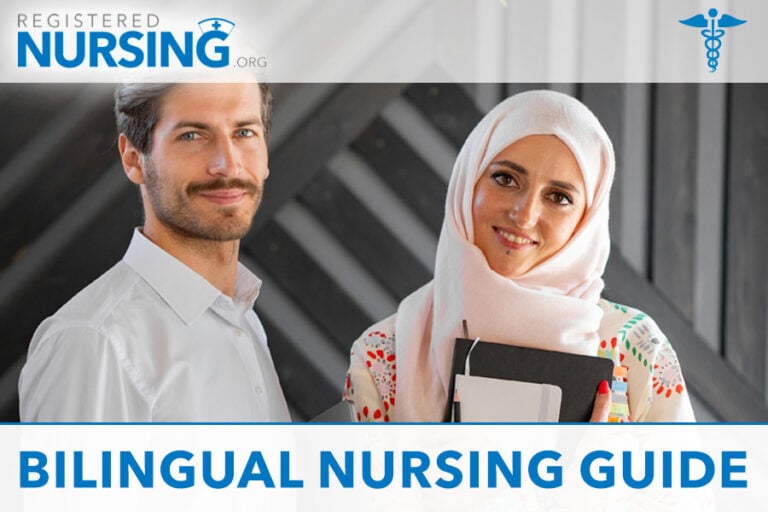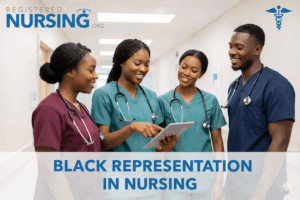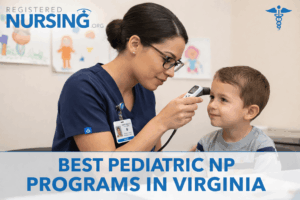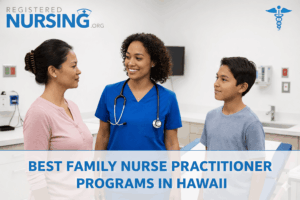Bilingual Nursing: Career Opportunities, Education Paths, and Growing Demand

In today’s diverse healthcare landscape, the ability to communicate in multiple languages has evolved from a beneficial skill to an essential qualification for many nursing positions. Bilingual nurses serve as critical bridges between healthcare providers and patients who have limited English proficiency (LEP), ensuring accurate communication that directly impacts patient outcomes and satisfaction.
Recent studies show that language barriers significantly affect healthcare delivery, with LEP patients experiencing longer hospital stays, higher readmission rates, and increased risk of medical errors. With over 67 million U.S. residents speaking a language other than English at home—a number that continues to grow—healthcare facilities nationwide are actively recruiting nursing professionals who can provide culturally and linguistically competent care.
Benefits of Becoming a Bilingual Nurse
Enhanced Career Opportunities
Bilingual nurses enjoy substantially expanded employment options. Many healthcare facilities now offer premium pay—typically $1-5 more per hour—for verified language skills. Beyond the financial incentives, bilingual nurses often experience:
- Faster career advancement
- Greater job security
- Increased marketability across diverse healthcare settings
- Opportunities for specialized roles as cultural liaisons
- Higher consideration for leadership positions
Improved Patient Care
When nurses can communicate directly with patients in their preferred language, they provide significantly better care by:
- Obtaining more accurate medical histories
- Ensuring proper informed consent
- Reducing medication errors
- Improving patient adherence to treatment plans
- Decreasing anxiety and stress for both patients and families
Education Pathways for Bilingual Nursing
Specialized Degree Programs
Several nursing schools now offer programs specifically designed for bilingual nursing education:
- Bilingual Nursing Fellowship Programs: These specialized tracks combine traditional nursing curriculum with additional coursework in medical terminology in another language (most commonly Spanish, but also Mandarin, Tagalog, or Arabic).
- Cultural Competency Certificates: Available as add-ons to traditional BSN or MSN degrees, these certificates focus on providing culturally sensitive care to diverse populations.
- Accelerated Programs for Bilingual Students: Some institutions offer streamlined pathways for students who already possess fluency in high-demand languages.
Learn more about nursing degree programs.
Notable Programs Nationwide
- University of Texas at El Paso: Offers specialized Spanish-language medical terminology courses as part of their nursing program, as well as an online Spanish for Medical Professionals course.
- Florida International University: Features a Hispanic-focused nursing initiative
- NYU Rory Meyers College of Nursing: Provides cultural competency certification alongside traditional degrees
- Sacramento State University: Offers a certificate program in Spanish for Healthcare Professionals (HEALS)
Financial Incentives and Support
The growing recognition of bilingual nursing’s importance has led to increased financial support options:
Scholarships and Grants
- National Association of Hispanic Nurses Scholarships: Awards up to $5,000 for Hispanic nursing students
- Diversity Nursing Scholarships: Many hospitals and healthcare systems offer funding specifically for multilingual nursing candidates
- Language-Specific Grants: Federal and state programs targeting students pursuing healthcare careers with specific language skills
Employer Incentives
- Signing Bonuses: Many facilities offer enhanced sign-on bonuses for verified bilingual skills
- Tuition Reimbursement: Enhanced reimbursement rates for nurses pursuing language certifications
- Language Differential Pay: Permanent hourly pay increases for certified language skills
High-Demand Regions and Settings
Geographic Areas
The need for bilingual nurses is particularly acute in:
- Border States: Texas, California, Arizona, and New Mexico
- Major Metropolitan Areas: New York City, Los Angeles, Chicago, Miami, and Houston
- Agricultural Regions: Areas with large migrant worker populations
- Tourist Destinations: Locations serving international visitors
Healthcare Settings
While all healthcare environments benefit from bilingual capabilities, certain settings demonstrate particularly high demand:
- Community Health Centers: Serving diverse local populations
- Emergency Departments: Where immediate, accurate communication is critical
- Maternal and Child Health Services: Requiring nuanced, sensitive communication
- Mental Health Facilities: Where precise language is essential for diagnosis and treatment
- Home Healthcare: Providing care in patients’ personal environments
The Path Forward: Getting Started in Bilingual Nursing
For prospective nurses interested in leveraging language skills, consider these steps:
- Assess Your Language Proficiency: Seek formal evaluation of your language skills through certified testing
- Research Specialized Programs: Identify nursing schools with bilingual components or cultural competency tracks
- Already Bilingual? Enroll in Nursing School: Consider a 2-year ADN nursing degree or a 4-year BSN nursing degree to get started
- Build Clinical Experience: Seek volunteer opportunities in diverse communities
- Obtain Certification: Consider pursuing formal medical interpreter certification alongside nursing credentials
- Network Strategically: Connect with professional organizations like the National Association of Hispanic Nurses or similar cultural nursing organizations
The Rising Demand for Bilingual Nurses
The demand for bilingual nurses continues to grow alongside America’s increasing diversity. For nursing students and professionals with language skills, this trend represents a significant opportunity to advance their careers while making a profound difference in healthcare delivery for underserved populations. By pursuing specialized education and leveraging existing language abilities, bilingual nurses position themselves at the forefront of a healthcare system striving for greater inclusivity and effectiveness across all communities.
As healthcare facilities work to meet accreditation requirements for providing language services and improve patient outcomes, bilingual nurses will remain highly sought-after professionals whose skills directly contribute to healthcare equity and excellence.
Latest Articles & Guides
One of the keys to success as a registered nurse is embracing lifelong learning. Our articles and guides address hot topics and current events in nursing, from education to career mobility and beyond. No matter where you are on your nursing journey, there’s an article to help you build your knowledge base.
Browse our latest articles, curated specifically for modern nurses.



